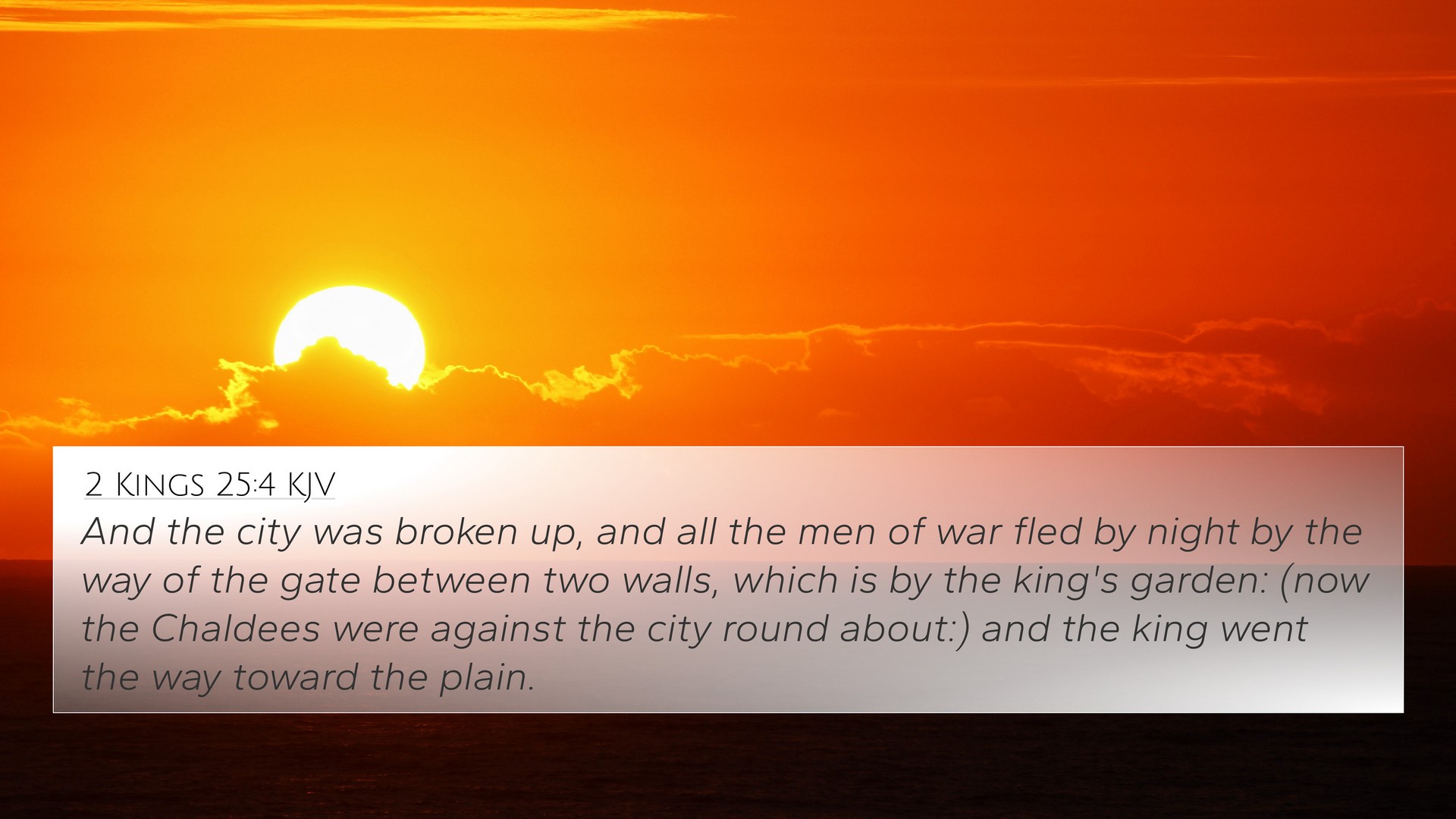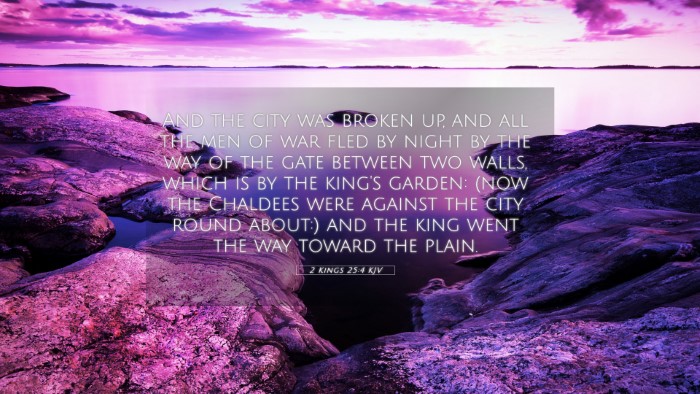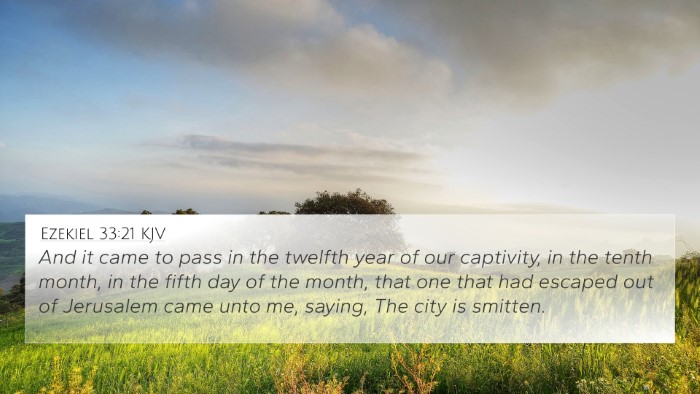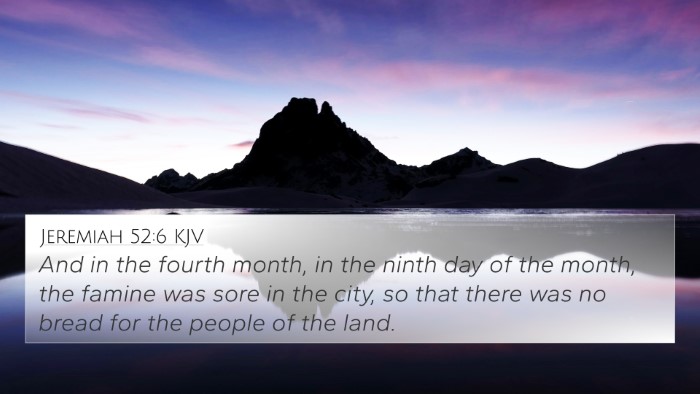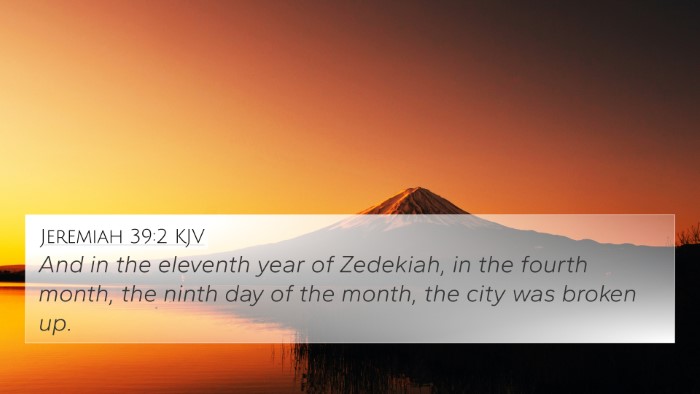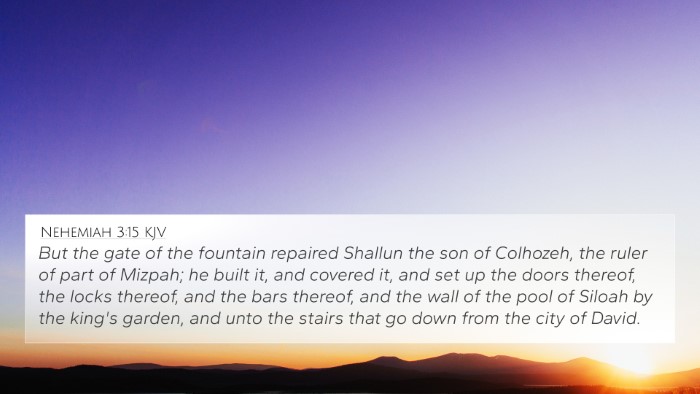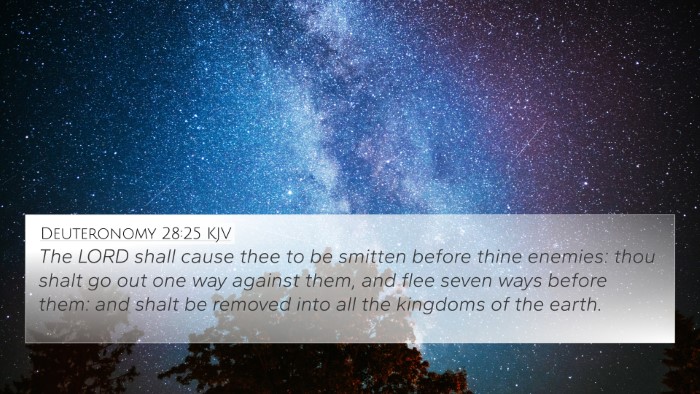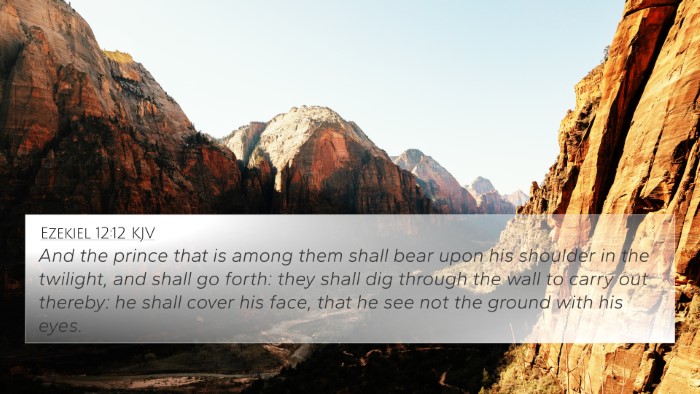Understanding 2 Kings 25:4
2 Kings 25:4 reads: "And the city was broken up, and all the men of war fled by night by the way of the gate between the two walls, which is by the king's garden; now the Chaldeans were against the city round about: and the king went the way toward the plain."
Summary of the Verse
This verse describes the fall of Jerusalem and the desperate actions of its defenders during the siege by the Chaldeans (Babylonians). The men of war, overwhelmed by the situation, fled the city by night, indicating a state of panic and the dire situation faced by the Israelites. The mention of the king fleeing towards the plain signifies not just the physical escape but also the collapse of authority and leadership in the face of impending disaster.
Commentary Insights
Matthew Henry's Commentary
Matthew Henry notes the profound tragedy of Jerusalem's fall, emphasizing the failure of its leaders and the divine judgment upon the people for their sins. The flight of the men of war is depicted as a shameful retreat, highlighting the futility of human strength against God's will.
Albert Barnes' Notes
Albert Barnes provides a historical context, explaining that the Chaldeans' siege was a direct consequence of Judah's disobedience. He highlights the strategic movements of the king and his soldiers, pointing out that the flight by night suggests a tactical retreat but also an acknowledgment of defeat.
Adam Clarke's Commentary
Adam Clarke elaborates on the geography mentioned in the verse, describing the streets and pathways of Jerusalem. He underscores the significance of the event as an illustration of God's judgment and the dire consequences that follow unrepentant sin. Clarke also reflects on the nature of leadership in times of crisis, noting the absence of courage among the leaders.
Related Bible Verses
When analyzing 2 Kings 25:4, several other scriptures provide context and enrich understanding. Notable cross-references include:
- 2 Kings 24:20 - Discusses King Jehoiakim's rebellion and God's judgment.
- Jeremiah 39:4 - Parallel account of the siege, detailing the efforts of the defenders.
- Jeremiah 52:7 - A similar narrative, highlighting the destruction of Jerusalem.
- Ezekiel 33:21 - Reflects on the consequences of Jerusalem’s fall.
- Lamentations 1:1 - Expresses the emotional sorrow over the city’s destruction.
- Matthew 24:2 - Jesus prophesies the destruction of the temple, echoing the fate of Jerusalem.
- Isaiah 39:5-7 - Foretells the Babylonian captivity, providing a prophecy about the future of Judah.
Thematic Connections
2 Kings 25:4 encapsulates themes of divine judgment, the fragility of human leadership, and the historical consequences of national sin. The following topics can be derived from the verse:
- Judgment and Consequences: The retreat of the soldiers symbolizes the loss of spiritual and physical protection due to disobedience.
- Leadership in Crisis: The king's escape reflects the breakdown of leadership when it is most needed.
- Hope vs. Despair: The fall of Jerusalem serves as a cautionary tale about turning away from God, urging future generations to remain steadfast in faith.
Tools for Biblical Cross-Referencing
For those interested in deeper insights, a variety of tools aid in cross-referencing biblical texts:
- Bible Concordance: Utilizes key terms to connect various verses.
- Bible Cross-Reference Guide: A resource for tracing thematic connections.
- Bible Reference Resources: Comprehensive materials that provide additional context.
Inter-Biblical Dialogue
Throughout scripture, 2 Kings 25:4 dialogues with various texts across both the Old and New Testaments. It enriches the understanding of how biblical history informs theological principles that resonate today
.
Examples of Inter-Biblical Connections:
- Interpreting Judgment: Connections with prophetic books that underscore themes of judgment and restoration.
- New Testament Reflections: Parallels in the Gospels that signify the redemption following destruction.
- Ethical Lessons: Themes of responsibility and integrity in leadership that find resonance in Pauline letters.
Conclusion
2 Kings 25:4 is a multifaceted verse, indicative of divine judgment while reflecting on human failure. Through comparative Bible verse analysis, we see the interconnectedness of scriptural teachings across various books. By utilizing tools for Bible cross-referencing, one can further explore the rich themes and lessons that emanate from this and related verses.
